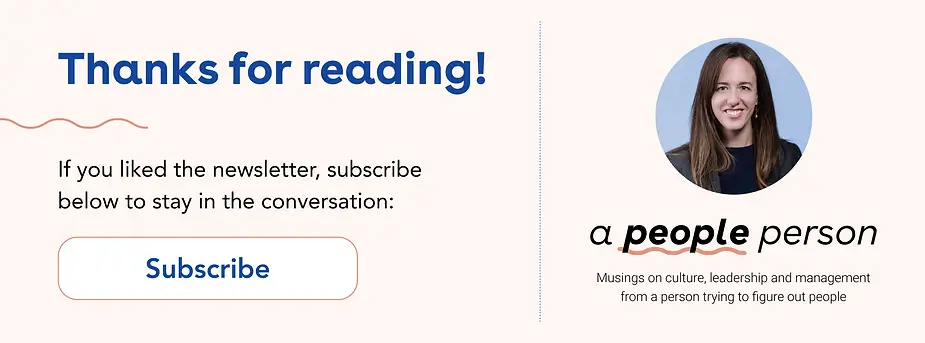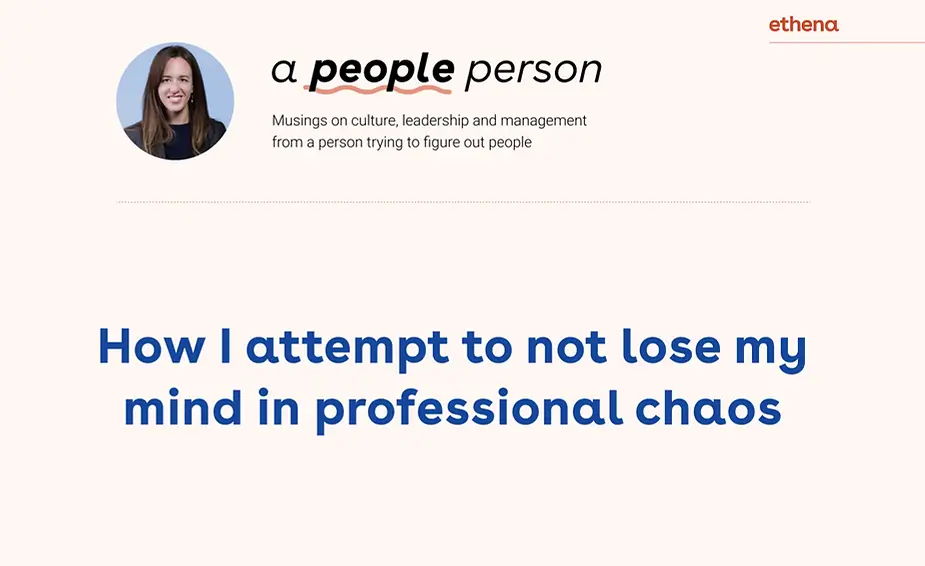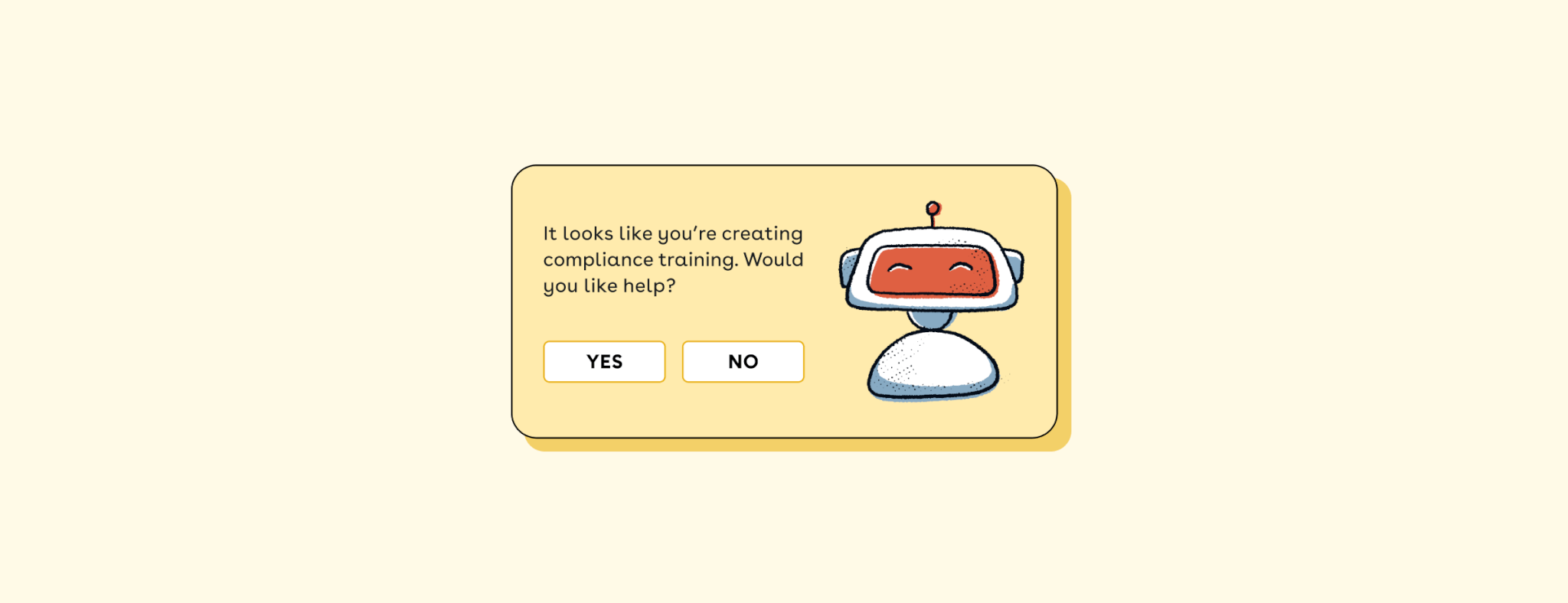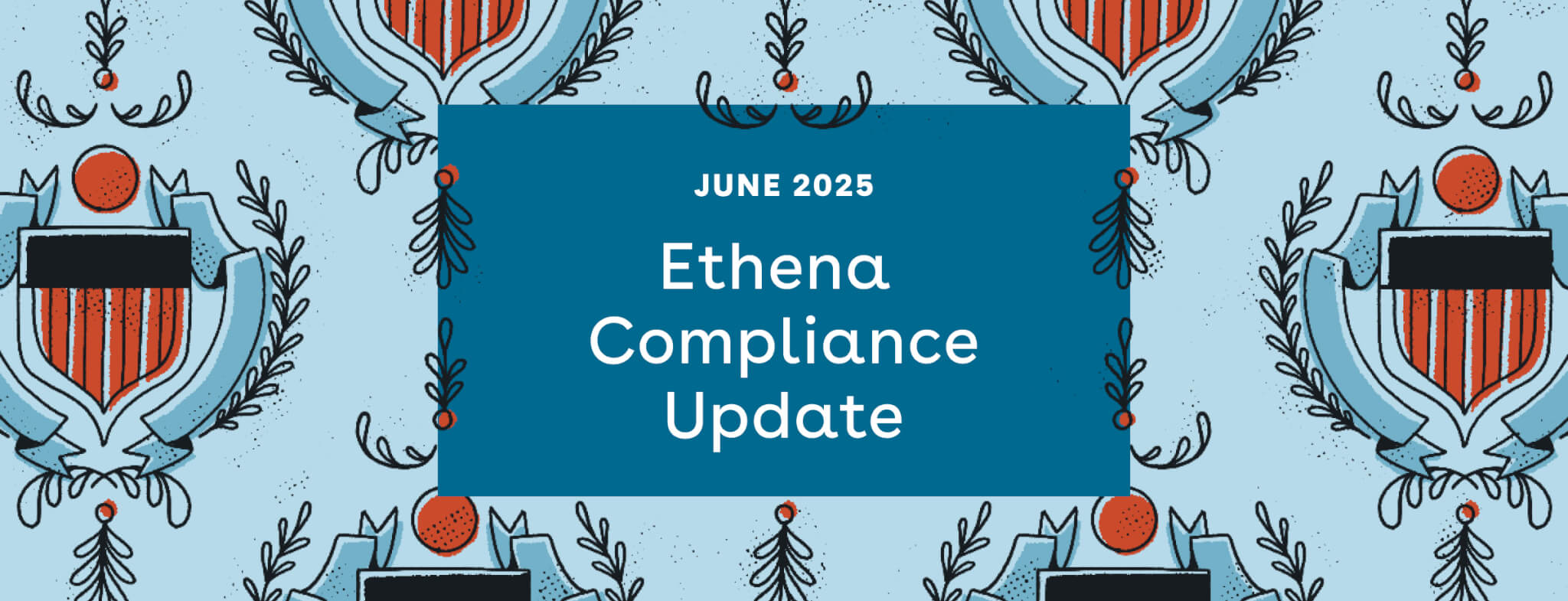Hi there,
Okay, I really don’t want to oversell this one — I cannot tell you how to keep it all together. Life is hard, and despite having watched two episodes of Shrinking, I don’t feel qualified to be anyone’s therapist.
But this week, I asked my Ethena team what I should write about. And, either because they like this newsletter or because I’m their boss, they responded! One recommended theme was how to keep it together at work, specifically when there’s a lot going on.
I am an expert in this insofar as I’ve spent much of my professional life in chaotic environments, whether in the Army during the height of the global wars on terror, bootstrapping a business (which is like getting punched in the face without much money), or co-founding a Series B venture-backed company (which is like getting punched in the face with a lot of money).
I’m not saying I’m great at it, but I do keep coming back for more, so today, I’m sharing my three tips on the incredibly vague topic of keeping it together professionally.
COOL AS A CUCUMBER (WHILE IN A PICKLE)
1. Behind every woman, there's a great man
A long time ago, I was a grad student at Oxford (flex), and I went to Rhodes House (because I was a Rhodes Scholar, flex on flex… please don’t unsubscribe) to listen to a talk by Anne-Marie Slaughter. The talk was about “work-life balance,” which seemed to be on every woman’s mind.
This talk eventually became the famous Atlantic article Why Women Still Can’t Have it All. And I even got a little mention for thanking Anne-Marie for telling it like it was. But what I remember most is something she said as an aside. She said the most important professional decision you’ll ever make is whom to marry.
Now, being married, I wholly agree.
I’m able to keep things together professionally because I have a partner who will sometimes listen to me complain about work. Other times, just as helpfully, he’ll tell me he is deeply uninterested in whatever problem I want to talk through, and instead, we’re going to watch Break Point (a Netflix docuseries that follows professional tennis players).
Anyway, you cannot have my partner (cue Jolene). But I have found that investing in my relationship has paid dividends professionally. One super tactical thing I do is carve out one night a week for date night, and I attempt to limit my work talk at home to ~5 mins (which almost certainly turns into more, but it’s the intention that matters).
2. Pretend it's a video game
Speaking of Break Point, which is phenomenal mostly because they selected the most beautiful tennis players on the planet, something a coach said in the show caught my ear.
He was telling a player who is especially hard on himself to have fun with the game. The coach said something like, “You both have to play every shot like your life depends on it and have fun.” That’s a hell of a contradiction, but it’s one that I’ve found myself embracing, too.
When I was younger, I had a real chip on my shoulder (I think it’s because I felt salty that I had to join the Army to pay for Harvard), and I felt like every professional challenge was make-or-break. I either got a Rhodes Scholarship, or I was going to fade into oblivion and die.
That kind of high-stakes game isn’t motivating in the long run: it’s exhausting. So I’ve slowly tried to cultivate an air of playfulness in work, even though I still deeply care about building Ethena into an enduring, great, public company.
How, you might ask? Well, weird as it is to admit this, sometimes, when I face a challenge, I pretend I’m a character in a video game and ask, “what would this character do next?” I don't know if this is psychologically healthy, but I find that observing myself work instead of being in first-person the whole time has made me more able to endure stress and anxiety.
3. Have a tech stack
None of these things on their own matter nearly as much as finding the right professional role or personal partner, but they all help a bit:
- Therapy – just do it.
- Working out – I Crossfit ~3 times a week. I feel deeply sad when my alarm goes off at 5:40AM, but then at 7, when I am done and sweaty, I feel like the strongest woman on the planet.
- Meditation – I hate it! Still not sure it’s “working,” but whatever, it’s 5 mins a day. I use Headspace.
- Take walks – I don’t do this enough, but it’s magical when I do.
- Outsource what you don’t like – I find people are reluctant to share that they do this but usually the answer to, “how does she do it all?” is that she doesn’t. She has a cleaner, a nanny, whatever. Don’t feel bad if you decide you want to trade money for time.
- Therapy – just do it (and it bears repeating).
What I'm reading
This New York Times article is devastating and hard to read. It’s like watching a horror film, but much harder because it’s someone’s real life. I didn’t know Ian, but I know that voicing concerns about misconduct in the Army required a tremendous amount of courage. And I feel that, as a country, we are losing whenever we can’t find a way to care for veterans with mental health issues.
What I'm doing
The rest of the Ethena team and I are taking a brand new course that our incredible VP of People, Melanie Naranjo, created. It’s about all the fuzzy, hard stuff managers face, like balancing empathy with accountability. Check it out here! It’s literally for free and given how important managers are, it’s great to invest in helping them grow!
Until next time,
Roxanne Petraeus
CEO & Co-founder, Ethena









